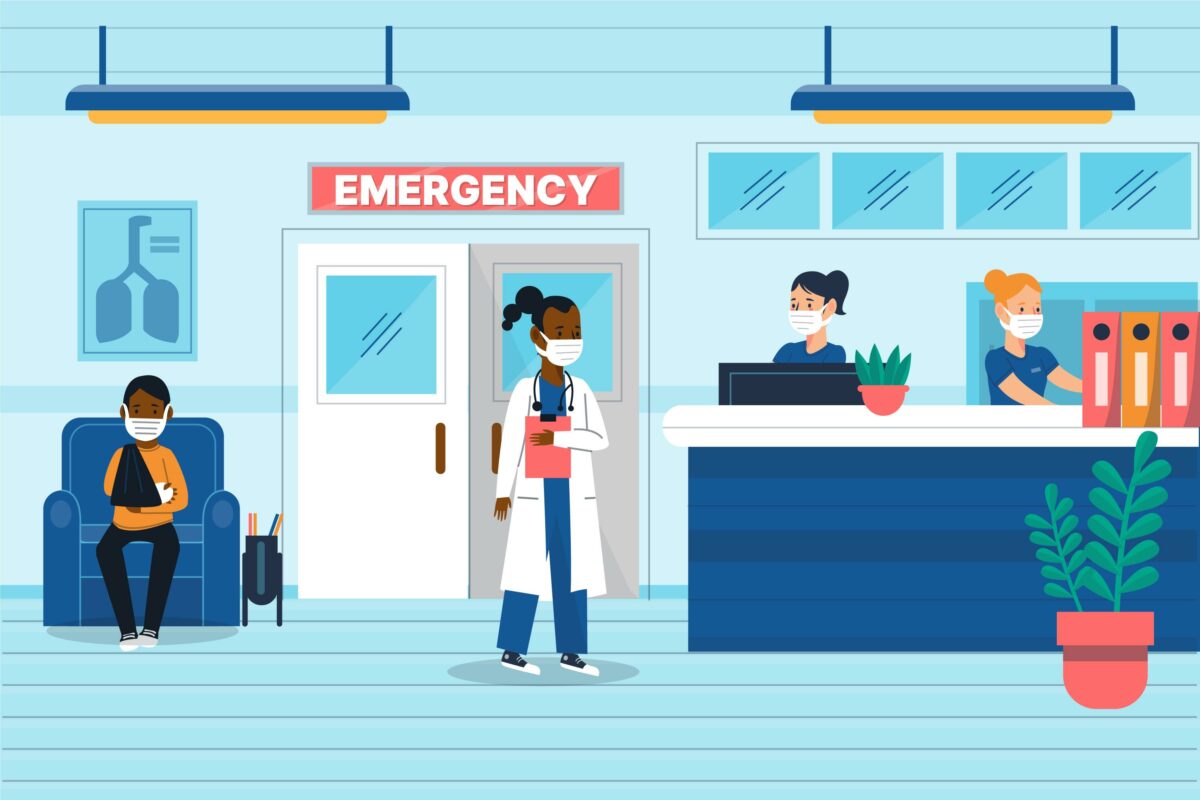Did you know? Healthcare is the fastest-growing field in the United States. This declaration comes to us straight from the horse’s mouth. The Bureau of Labor Statistics published findings in the summer of 2023 that indicated doctors and nurses would be in high demand for the next ten years.
This information isn’t radically surprising for anyone who has been paying attention to the news. During Covid-19 we couldn’t stop hearing about how hospitals didn’t have the staff to handle the enormous increase in patient loads.
Last year, an ER nurse made national news after calling emergency services to request backup help. There hadn’t been a bus crash that sent 90 people to the hospital all at once. They simply didn’t have enough staff to cover a normal Saturday evening.
What is contributing to these shortages, and how can the demand for doctors and nurses be seen as an opportunity?
What’s Going On?
While it’s tempting to lay the healthcare shortage at Covid’s feet— you couldn’t ask for a better villain when explaining a problem— the truth is a little more complicated than that. Healthcare shortages have been forecasted for more than a decade.
Analysts have been sounding the alarm as more and more nurses retire or leave the profession for different work, while not enough new nurses come up through the ranks to replace them.
Healthcare was already in a vulnerable state when the pandemic came along to shape things up. Today, we are still dealing with the ramifications of those combined factors.
To make matters worse, there still hasn’t been a solution to healthcare’s primary problem: high turnover.
Nursing jobs are very hard. Emotionally. Physically. Mentally. Most nurses work twelve-hour shifts, even though studies indicate that the average person only has enough mental gas in the tank to produce four hours of sustained concentration per day.
That, of course, does not mean that a person is useless after they hit their peak. It does mean their efforts will be a matter of diminishing returns.
Eight hours is quite a bit of diminishing returns.
Even after years of healthcare shortages, the industry has not come up with a comprehensive response to the problem.
What could help correct healthcare shortages?
Quality of Life Considerations
About half of all nurses leave the profession within three years of starting. That’s a disastrous ratio that very directly reflects on the experience most healthcare professionals encounter on the job. What about working as a nurse drives so many people away?
- The shifts are long.
- The hours cover holidays, evenings, and weekends.
- The work is brutal.
Most nurses work cripplingly long hours. They see hard things on the job, and they often become isolated from their friends and family based on the hours they keep. It’s hard to connect with your loved ones when you are exhausted all the time and going to bed when they wake up.
Some hospitals are trying to correct this by providing mental health resources and revamping their scheduling practices to make the job more sustainable.
These steps are still very much a work in progress, but they are making things a little bit easier for nurses all over the country.
How This Benefits You
If you are considering getting a job as a nurse, now is a good time to do it. It’s true that the work is not easy. It’s also true that many of the issues described in the earlier paragraphs are far from resolved. Many hospitals have not made any significant headway on improving quality of life-considerations for their nursing staff.
Even those who have can’t do anything about the emotionally challenging aspects of the work. Nursing is a hard job and it is always going to take a special type of person to do it. If you can dedicate yourself to helping others, if you can accept the fact that you’ll constantly witness human tragedy at work only to be sent home to live an ordinary life (it’s hard to sit down to dinner with your family after watching someone die, but nurses do it every day) nursing might be the right job for you.
Here are a few reasons why now is a particularly good time.
- It’s a seller’s market: Many hospitals are offering signing bonuses and other incentives to attract new nurses. While it’s not a job known for its perks, now is a good time to apply a little bit of leverage to the hiring process.
- You won’t have any trouble finding work: There have been times when nurses have had a hard time finding jobs. It’s not that we have had a major nursing surplus in recent years. Rather, it’s always been a logistic problem. Regardless of the overall state of employment, every town only needs a set number of nurses. When they hit that number it could be years before the local hospital system needs to make a new hire. While that is still a problem in some parts of the country, the dynamic has shifted hard in the other direction. Now, most hospitals need help and a nurse seeking employment today should have no trouble getting their desired placement.
- The culture is changing: Slowly but surely, the healthcare worker culture is shifting in a more sustainable direction. Some hospitals are implementing flex scheduling and other quality-of-life considerations that are helping nurses avoid burnout and stay on the job for longer.
If you are interested in becoming a nurse but don’t know what steps to take, there are plenty of resources available to help.
Choosing the Right Nursing School
Here is a quick cheat sheet that should help you find a good nursing school program for your needs.
- Consider online classes: While nursing has a very obvious and inextricable hands-on component, you can complete much of your educational requirements from home. Remote learning provides a flexible learning environment— particularly for people who are already working or raising a family.
- Consider accelerated curriculums: If you don’t want to wait four years to start working as a nurse, you can get your qualifications completed much quicker with an accelerated program. While they do require a lot of work, they allow you to meet your requirements within 18 months.
- Understand your options: If you already have a degree you can skip your gen-ed requirements and get certified as a nurse much quicker. It’s another great way to accelerate your career.
Ready to get started? Begin looking into nursing programs today so that you can make a meaningful and much-needed contribution toward the future of healthcare.
With a Bachelor’s in Health Science along with an MBA, Sarah Daren has a wealth of knowledge within both the health and business sectors. Her expertise in scaling and identifying ways tech can improve the lives of others has led Sarah to be a consultant for a number of startup businesses, most prominently in the wellness industry, wearable technology and health education. She implements her health knowledge into every aspect of her life with a focus on making America a healthier and safer place for future generations to come.
Disclaimer: The viewpoint expressed in this article is the opinion of the author and is not necessarily the viewpoint of the owners or employees at Healthcare Staffing Innovations, LLC.









